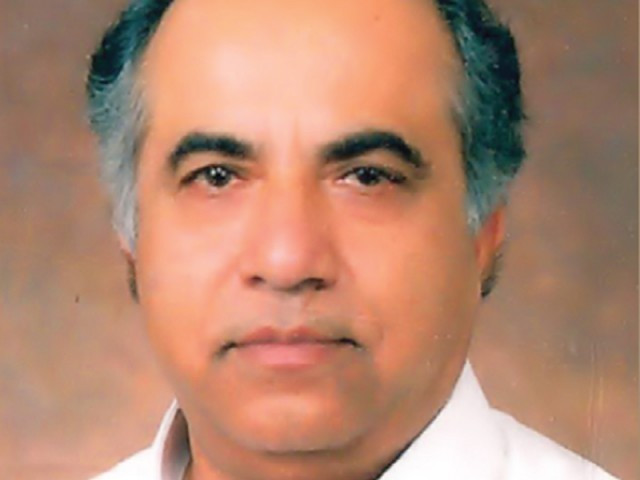Social perspective: Govt to consider citizens’ take on local bodies laws
Law minister said that different laws, acts and LG laws from other provinces were also being considered.

“I proposed to consider input from the people of Sindh because it is these people that would benefit from the laws,” said Mandhro. “I suggested that the committee approach all segments of society so they may take part in the discussion and help in designing the law.” PHOTO: FILE.
This option was discussed by several prominent provincial legislators and representatives of civil society who gathered at a moot organised by the Strengthening Participatory Organisation (SPO) for a discussion on the local government system and how it could be strengthened to benefit the general public, on Monday.

Pakistan Muslim League-Nawaz MPA Haji Shafi Mohammed Jamot, Pakistan Peoples Party leader Taj Hyder, Rahat Saeed of Anjuman Tarraqi Passand Musanfeen, SPO board of directors member Javed Jabbar, renowned poet and writer Fahmeeda Riaz, Abrar Qazi of Awami Jamhoori Party, SPO chief executive officer Naseer Memon, Jeay Sindh Mahaz president Abdul Khaliq Junejo, Pakistan Muslim League- Functional MPA Mahtab Akbar Rashdi, as well as, members of the civil society took part in the discussion.
The provincial law minister, Dr Sikandar Mandhro, member of the government’s committee on local bodies laws, said that the Supreme Court had put the Sindh government in a fix to set a date for the elections. He was, however, optimistic since the committee had invited recommendations from different stakeholders so that they may design the new laws according to the needs of the people.
Dr Mandhro said that, under the new laws, the district governments would receive direct funds in separate accounts and will be responsible to release funds for the union councils falling under their jurisdictions. Women will have 33 per cent seats while farmers and labourers and minorities will have five per cent seats each allocated to them.
“I proposed to consider input from the people of Sindh because it is these people that would benefit from the laws,” he said. “I suggested that the committee approach all segments of society so they may take part in the discussion and help in designing the law.”
The minister explained that the new LG law was drafted bearing in mind all the laws, constitutional changes and even the pre-partition Karachi Municipal Act. The officials also studied and considered the LG laws operational in Punjab and Khyber-Pakhtunkhwa to help design the framework of the law, which would be acceptable to everyone. The officials had also explained the drafted version of the law to 35 citizens who had expressed satisfaction over its terms, said Mandhro.
Jami Chandio said it was unfortunate that LG system had been controversial in Pakistan. The military governments introduced these LB laws during their tenure. But the political governments never took it seriously to impose the law even though it was a basic component of democracy and a prerequisite to strengthen the democratic institutions, he lamented.
Naseer Memon welcomed the participants and said that the LG system was one of the basic tiers of democracy. Common citizens expected relief and service delivery - both of which criteria the LG system fulfilled.
Sharing objectives of the dialogue, he said that SPO had launched a nation-wide campaign to collect recommendations which will be shared with the government.
Zulfiqar Halepoto said that, “We need a system to build bridges between rural and urban populations in Sindh. We should design comprehensive recommendations and the government should listen to criticism with an open mind.”
Zubeda Birwani said there were 18 town councils introduced by the Mushharraf government but they always failed to address the grievances of the people living in the suburbs.
Published in The Express Tribune, August 8th, 2013.



















COMMENTS
Comments are moderated and generally will be posted if they are on-topic and not abusive.
For more information, please see our Comments FAQ